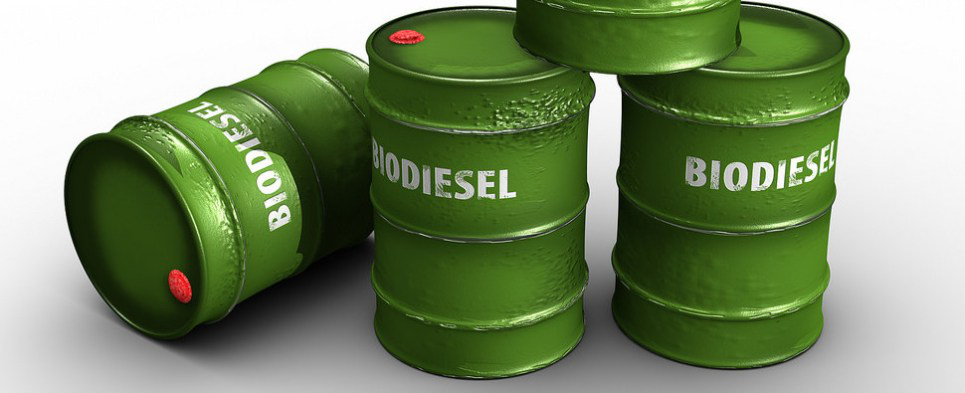Biodiesel from Waste Cooking Oil
Biodiesel is the non-toxic renewable fuel which has the potential to replace diesel fuel with little or no modifications in the diesel engine. Waste cooking oil can be used as the source to produce biodiesel.
According to experts, a liter of waste cooking oil can produce 850 to 950 ml of biodiesel depending on the quality of the raw material used.
The use of vegetable oils and their derivatives was found to be one of the reasonable solutions to increasing environmental problems. However, the direct use of vegetable oils in diesel engines was found improper due to several factors, such as the high viscosity, acid composition, and free fatty acid content. Accordingly, they require further modifications for effective use.

The process which is used in the conversion of Waste cooking oil to useable Biodiesel is Transesterification. Transesterification is a process of transforming triglycerides in vegetable oils into a mixture of fatty acid esters using alcohol and catalyst to increase the speed of the reaction and also produce efficient biodiesel yields. On the product side, methyl or ethyl esters are obtained, with much more identical properties to those of conventional diesel fuels.
International Conference on Industrial Biotechnology and BioprocessingAugust 16-18, 2018Copenhagen, DenmarkMore details at https://goo.gl/Uny26h
According to experts, a liter of waste cooking oil can produce 850 to 950 ml of biodiesel depending on the quality of the raw material used.
The use of vegetable oils and their derivatives was found to be one of the reasonable solutions to increasing environmental problems. However, the direct use of vegetable oils in diesel engines was found improper due to several factors, such as the high viscosity, acid composition, and free fatty acid content. Accordingly, they require further modifications for effective use.

The process which is used in the conversion of Waste cooking oil to useable Biodiesel is Transesterification. Transesterification is a process of transforming triglycerides in vegetable oils into a mixture of fatty acid esters using alcohol and catalyst to increase the speed of the reaction and also produce efficient biodiesel yields. On the product side, methyl or ethyl esters are obtained, with much more identical properties to those of conventional diesel fuels.
International Conference on Industrial Biotechnology and BioprocessingAugust 16-18, 2018Copenhagen, DenmarkMore details at https://goo.gl/Uny26h
Comments
Post a Comment